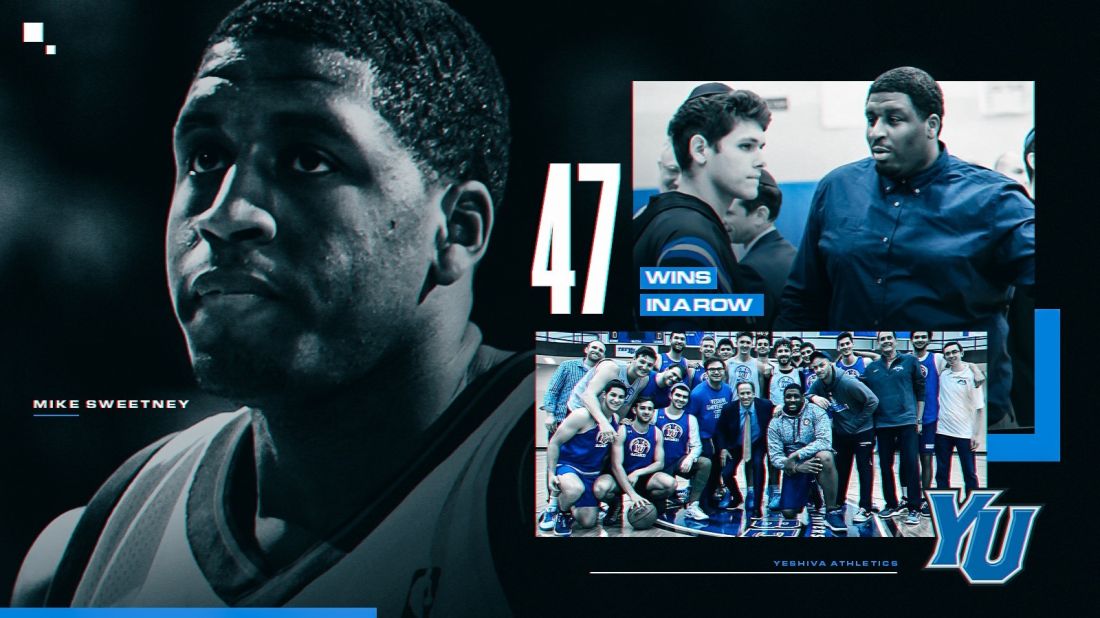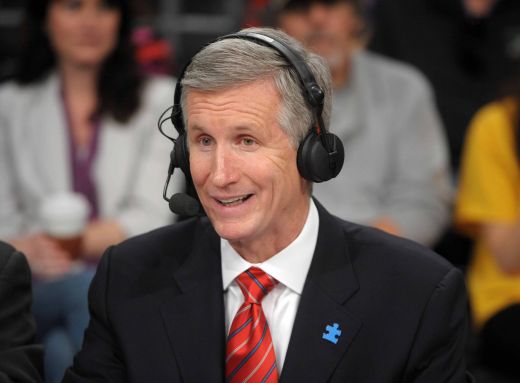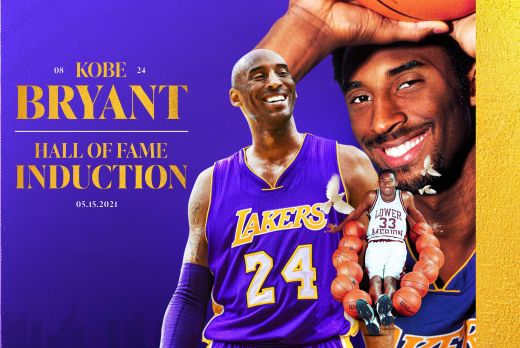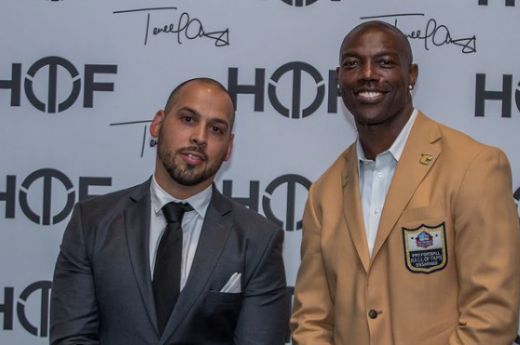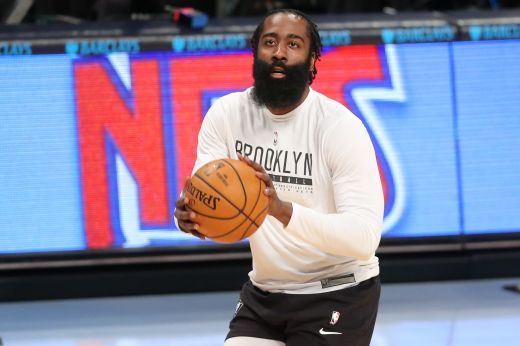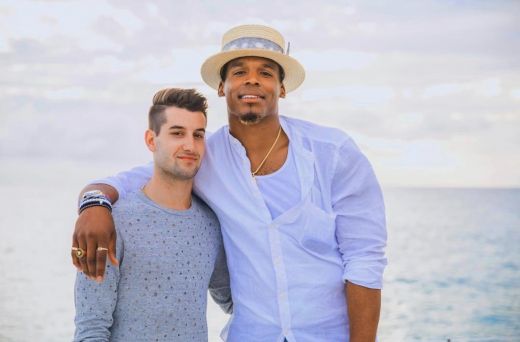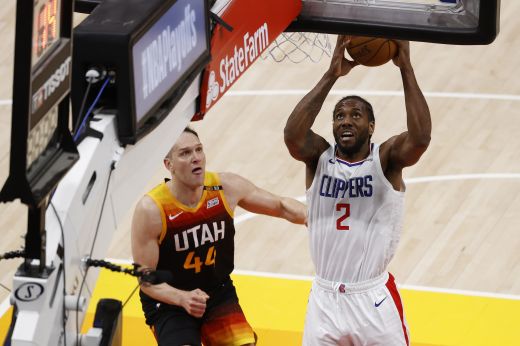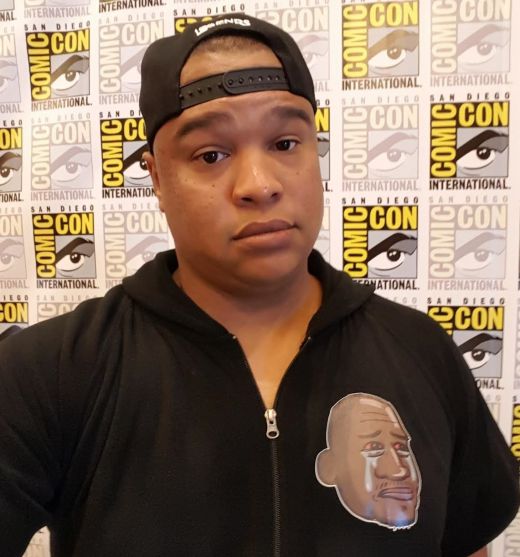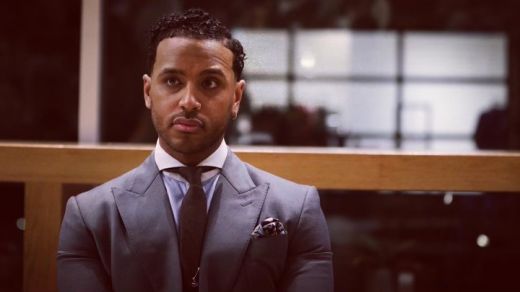If there was a moment that affirmed Michael Sweetney’s decision to join the coaching staff at Yeshiva University – a school known for producing rabbis rather than basketball stars – it occurred when a player lost his kippah, or skullcap, during a game.
“One of the guys on the other team picked it up,” recalled the former Georgetown standout and New York Knicks first-round draft pick, “and was chasing him downcourt to give it back to him. We were on offense. They were on defense. But it was so important for this player to show his respect to our guy.”
For Sweetney, 39 – who wears his Christian faith as proudly as members of the crowd at Yeshiva’s Max Stern Athletic Center wear their tzitzit, or ritual fringes, below their garments -- the exchange embodied his experience of bridging cultures and finding small pearls of humanity in every interaction.
“Basketball is my therapy,” he told OSDB Sports recently.
And this is a man who has had a lot of therapy. During his NBA rookie season in 2003, a despondent Sweetney attempted suicide, keeping his secret hidden as his depression worsened. Without the pain of that experience, he realizes that he wouldn’t be where he is today: working as a spokesperson for a non-profit mental health agency by day and assistant coach for the No. 1-ranked Div. III college basketball team by night.
“I never thought I’d say this,” he admitted, “but I’m glad everything happened the way it did.”
The Yeshiva University Maccabees – named for the ancient rebel warriors whose war against the Judean secular authorities led to the creation of the Jewish “festival of lights,” Hanukkah – are enjoying an astounding 47-game victory streak after Monday night’s 94-48 win over Brooklyn College.
“We feel a great sense of accomplishment,” explained Gabriel Leifer, a 6-foot-6 forward from Long Island, “because we’re winning for our religion.”
And Sweetney, the only African-American and non-Jew on the Yeshiva bench, is one of many factors fueling the school’s dominance.
“He leads because of his morals,” Leifer said. “He’s an easy fit at a value-oriented school.”
Noted Ryan Turell, a 6-foot-7 guard from Los Angeles and the only player at the Division III school touted as having NBA potential, “To be honest, he’d be accepted in any community. There’s nothing fake about him. He’s just real and he cares.”
Sweetney was nine when his father, Samuel, a civil engineer, introduced him to basketball.
“I didn’t like it at first,” Sweetney remembered. “There were guys on the team who were better players. But I guess my father saw something in me, and he encouraged me to keep playing.”
Heeding his father’s advice, Sweetney triumphed over self-doubt. By the time he attended Maryland’s Oxon Hill High School, he was playing on the varsity squad as a freshman, and the Washington Post would name him as the premier player in the DC area. At Georgetown, the 6-foot-8 power forward was racking up awards and averaging 18.2 points a game.
In the 2003 NBA draft, he was the ninth overall pick and snatched up by the Knicks.
And that’s when the problems started.
“My picture was on a billboard in Times Square,” he said. “It sounds great. But that’s a lot of pressure.”
After faring well in the summer league preceding the season, he was dealt an unfathomable loss when his father died at age 54 from a heart attack.
“I talked to him that morning and then, he was gone. He went to every one of my practices, every one of my games, and now he was missing, Sweetney said. “It was the only thing I could think about. But I thought that if I talked about my depression, people would think I was crazy. So, I tried to fight through it, and it didn’t work.”
What none of his teammates knew was that, as a rookie, he took a large quantity of pain pills one night in a Cleveland hotel room. When he awoke the next morning, he realized that his suicide attempt had been a failure.
In the course of two seasons, he averaged 7.0 points and 4.8 rebounds per game before being traded to the Chicago Bulls. His weight ballooned, and – without his father to mentor him -- he was struck with an overall feeling of hopelessness.
“People think if you’ve made it to the NBA, you have nothing to worry about,” he said. “They don’t understand that when there’s a bad story written about you, there’s a human being on the other side, taking it in.”
As the years went on, his NBA career sputtered along. After 2007, he did not make a single appearance in an NBA game. After being cut by the Boston Celtics in training camp in 2011, he began an odyssey that saw him play in such locations as Uruguay, Venezuela, Puerto Rico, the Dominican Republic and China.
His emotional turnaround began when his wife, India, became pregnant with the eldest of Sweetney’s three children, 11-year-old Ayden.
“I knew what an inspiration my father was to me,” Sweetney said. “And at that point, I couldn’t be that for my own child. If I wanted my father’s legacy to keep going, something had to change.”
The first step was acknowledging his depression. While home between international journeys, he began seeing a therapist.
“I still struggled,” he conceded. “Think about this. The therapist is only with you one hour out of a 24-hour day. It takes a while to learn to use the tools they’re giving you.”
In 2014, he finally felt strong enough to go public with the details of his ordeal. In an interview with the New York Post, he described the downward spiral that began with his father’s death.
“The narrative had been that I was a bust,” Sweetney said, “just a lazy guy who didn’t like basketball. Now, everyone knew what really happened.”
Within 24 hours, the story had gone viral and Sweetney was flooded with messages from others undergoing similar challenges. “People told me that because I was open about what happened to me, they were ready to ask for help, too. They weren’t alone.
“After so many years, I felt that I’d finally found my purpose.”
Within weeks, he was lecturing about the importance of acknowledging depression and mental illness. “It changed quickly. I almost felt human again.”
On an entirely different front, Sweetney’s life was taking another unexpected turn – bonding him to a community that can seem alien even to less observant Jews.
His entre came via Tamir Goodman, nicknamed “The Jewish Jordan,” who, as a junior at the Talmudical Academy of Baltimore, was ranked the 25th best prep school player in the United States. Both Goodman and Sweetney had participated in the Capital Classic, a Washington, DC-area all-star game for high school players. They were named co-MVPs and remained friends.
While Goodman was dealing with basketball commitments in Israel, he asked Sweetney to run his summer camp in the Poconos. Sweetney agreed and brought his family along.
“Tamir was the only Jewish person I ever knew in my life,” Sweetney said, “and most of the people at the camp came from Orthodox families. It wasn’t that I was worried about not being accepted. I didn’t want to make a mistake and offend anybody.”
Sweetney learned through immersion. He avoided speaking on his cell phone in front of campers and staffers on the Sabbath, when religious Jews tend of focus on prayer. His children asked respectful questions about the Kosher laws and other rituals. “The community took my family in,” Sweetney recalled.
Soon, he was conducting basketball clinics at synagogues and Jewish youth groups year-round. And in 2016, when IndiaSweetney’s job brought the family to the New York Metropolitan area, Goodman stepped in again.
“Mike had recently moved to New Jersey and was looking for something in basketball,” Yeshiva head coach Elliot Steinmetz remembered. “Tamir called and asked if I knew of anything. And I said, ‘I think we could use him as an assistant coach.’
“It’s so funny. Mike acted like we were doing him a favor, when we thought he was this great grab.”
Steinmetz – whose son, Jacob, recently became the first Orthodox Jew signed by a Major League team when the 18-year-old pitcher was drafted by the Arizona Diamondbacks – has a simple recruitment philosophy. If you’re an observant Jew, he reasons, isn’t it better to play for a strong Division III team that honors your lifestyle than going to a Division I school where you’re an anomaly?
Each Yeshiva player must balance a curriculum of religious and general studies, and take classes that require a knowledge of Hebrew and, in some instances, Aramaic – a language used during Biblical times.
Turell explained that basketball practice is deliberately held at 6 a.m. before morning prayers and his full regimen of classes.
“I’m a religious Jew and have always been a religious Jew,” he said, “and I think it would be impossible for me to play for a school where I might have to break Shabbos (the Sabbath), it would be hard to find kosher food, where time just isn’t put aside for prayer.”
Steinmetz said that Sweetney is particularly gifted at working individually with players who are battling through time management demands and other stresses. “We have guys who were superstars at the high school level and now, they’re sitting back, waiting their turn. So, there’s frustration and that leads to players seeking his advice.”
As Yeshiva has flourished, Sweetney also prepares players for the way other teams perceive them. “We’re hunted.”
Hours before Hanukkah began at sundown on Nov. 28th, Sweetney stood on the outside of the huddle as Hebrew pop music blared and Steinmetz readied his squad for a home game against the Manhattanville College Valiants.
“These are easy guys to coach,” Sweetney said. “They hold each other accountable. These are people who’ve been raised with values and think about big issues – and it translates to basketball.”
Yeshiva was facing a gutsy team in Manhattanville and, with 5:06 left in the first half, it looked like the streak could end when the Valiants took a 12-point lead.
“We came out sluggish,” Turrel recounted, “and we had to turn things around.”
Prior to the game, Sweetney had spoken to Turrel about putting his legs behind his jump shot. Now, as the star went on a tear, the assistant coach stayed in his ear.
“They’re going to double on you,” Sweetney warned. “Watch for the backdoor pass.”
When the Manhattanville defenders swarmed him, Turell was prepared, passing to teammate Ofek Reef, who promptly scored a layup.
With 14:31 left, Yeshiva took the lead. When the final buzzer sounded, the Macabees had won 78-55.
Remarkably, 51 of the team’s points had been scored by Turell, who went 8-for-15 in 3-point attempts.
“When you have a guy who’s cooking like that, the other guys want to give him the ball,” Steinmetz pointed out.
In the aftermath, it was noted that the team’s then-44-game winning streak matched the number of candles Jews would light on Hanukkah.
In Biblical numerology, the number 44 also represents the “Chosen People.”
While perhaps not qualifying for that distinction at birth, Michael Sweetney certainly walks among the chosen today.
Just ask anyone at Yeshiva University.
Said Turell, “It’s a blessing to have him here.”
Steinmetz is already thinking of his assistant coach’s long-term legacy: “He’ll be remembered not as a basketball player, but as someone who used the game as a platform to make other people’s lives better.”
